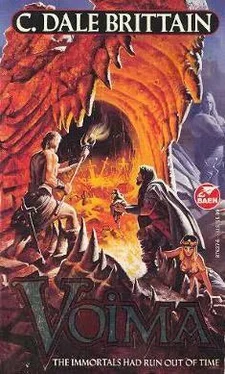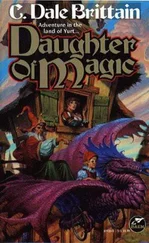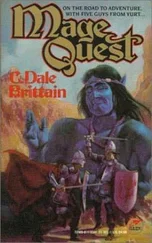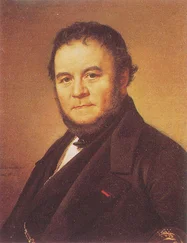C. Brittain - Voima
Здесь есть возможность читать онлайн «C. Brittain - Voima» весь текст электронной книги совершенно бесплатно (целиком полную версию без сокращений). В некоторых случаях можно слушать аудио, скачать через торрент в формате fb2 и присутствует краткое содержание. Жанр: Фэнтези, на английском языке. Описание произведения, (предисловие) а так же отзывы посетителей доступны на портале библиотеки ЛибКат.
- Название:Voima
- Автор:
- Жанр:
- Год:неизвестен
- ISBN:нет данных
- Рейтинг книги:3 / 5. Голосов: 1
-
Избранное:Добавить в избранное
- Отзывы:
-
Ваша оценка:
- 60
- 1
- 2
- 3
- 4
- 5
Voima: краткое содержание, описание и аннотация
Предлагаем к чтению аннотацию, описание, краткое содержание или предисловие (зависит от того, что написал сам автор книги «Voima»). Если вы не нашли необходимую информацию о книге — напишите в комментариях, мы постараемся отыскать её.
Voima — читать онлайн бесплатно полную книгу (весь текст) целиком
Ниже представлен текст книги, разбитый по страницам. Система сохранения места последней прочитанной страницы, позволяет с удобством читать онлайн бесплатно книгу «Voima», без необходимости каждый раз заново искать на чём Вы остановились. Поставьте закладку, и сможете в любой момент перейти на страницу, на которой закончили чтение.
Интервал:
Закладка:
Eirik and Roric walked slowly between the rows of reclining figures, shivering with arms wrapped around themselves. The dead did not seem to feel the cold. Here were passages that glowed with their own dim light, featureless, stretching on before them endlessly, filled with dead men and women and children who looked at them without moving but with hungry eyes. Roric fought against an increasingly powerful sense of futility and loss. Karin was becoming harder and harder to remember.
He had saved the realms of voima from death, he told himself. He had kept the forces of darkness from immortal lands. It should have been a triumphal shout, but it seemed here no great glory, only a disturbance such as he and Eirik made in the dust with their feet as they walked down unending passages where sprawled the dead.
Eirik stopped abruptly. “Here are the men for whom we just made the offerings,” he said in a half-choked whisper. Roric too recognized them. He forced himself to look closely at the men whom he and Valmar had killed, resisting the urge to stumble on unlooking and the feeling that there was no use any more in doing anything. These men bore their death wounds but they were more solid than any of the others they had passed.
“Eirik!” one croaked.
The renegade king began walking rapidly. “Are they less misty because they’ve been dead such a short time,” Roric asked himself aloud, trying to find the question interesting, “or because of the songs sung for them?”
“The songs, of course,” growled Eirik. He seemed either more excited than Roric to be here in Hel-or more frightened. “Don’t you know that the dead never truly fade away as long as their songs and stories are remembered? Those others, those that were almost gone- None must have remembered them.”
“Why do they keep looking at us like that?” Roric muttered.
“Because we are alive,” said Eirik shortly. “Keep walking. Weren’t you ever taught not to go near a burial mound at night? The dead, even the dead who live on in story, want life. Anyone alive who lingers too long near them, or near the passage that leads from every burial mound down to Hel, will have the life drained out of him.”
Roric reminded himself that he had sought this death deliberately, the one way out of dishonor, even though he realized now there was no honor here. The glory and praise of the songs, which might keep the dead more solid for a little while more, was still only glory in lands under the sun.
Had he indeed saved the lords of voima? Death should be gone again from their realms, but they might still be so weak from their fight with the dragon that neither Wanderers nor Hearthkeepers would be able to rule earth and sky-in which case both their realm and mortal realms would end, either by slow decay or sudden cataclysm. And he knew in the coldness of his heart that even if one or the other of the forces of voima rallied, fate could not ordain their unending power. Eirik was right that there was only one force to whom all came in the end.
As they walked the silence of the halls seemed to alter, just the tiniest amount, but there began to be for the first time sounds as though voices were shouting a very long distance away. It was heard in no passage when they entered, but it built behind them as though they themselves were giving voice to the dead. Roric, experimenting to keep the sense of futility away, discovered that if he held his charm high the effect was intensified.
They kept on walking. He was intensely aware of the blood coursing through him, of the air entering and leaving his body with every breath, and it seemed almost obscene among these shadowy wights. They felt it too, for their eyes kept turning to them, and several spoke Eirik’s name clearly, rising on their elbows for a better look, as well as mumbling behind them when they had passed. At one point the renegade king reached for his sword, but he was carrying a singing sword, and at the sound of the first wild and sweet notes the dead began to sit up. Eirik slammed the blade back in the sheath and pushed Roric to greater speed.
They turned a corner and saw a gray figure whose body was a strange mix of solidity and mistiness. His bloody chest, punctured as though by spears or dragon teeth, was vividly clear, but his face beneath a misty crown was almost invisible. His sword too was clear, a long triangular blade and a hilt set with jewels.
“This must be a king out of legend,” said Roric in wonder.
“King Thaar, I think,” said Eirik in an undertone, “who killed the dragon many generations ago up in my kingdom-the dragon who first built up the hoard by the sea. Look at his wounds-they’re just like in the stories. And this must be the sword Irontooth.”
“Then even someone remembered in the stories,” said Roric slowly, “will not stay solid here forever, because only a few aspects of his life will be remembered.”
“If he’s got no face at least he can’t try to talk to us,” said Eirik grimly.
They could have walked for an hour or for a week. Here Roric felt no weariness, no hunger, even though still alive. The cycles of waking and sleeping, eating and drinking, which ruled mortal lands had no existence here. He almost decided that these passages would never end, that they would wander past rows of the dead until earth and sky themselves passed away.
He kept looking around as they walked until he realized that he was looking for Karin and Valmar. If he did not find them it should mean they still lived and were safely home in Hadros’s court. Karin they would forgive quickly enough when it was clear that he himself was gone.
But if he stayed here she would arrive some day, gray like all these people, growing more misty as her grandchildren slowly forgot her, at best able to croak his name in recognition. He summoned again the vision of her smile beneath a brilliant sky. He had intended to die for her, his sister, his lover, his life. But being here, surrounded by the dead and not dead himself, he more than anything wanted her with him-or rather to be back under the sun with her.
Roric stopped so abruptly that Eirik, walking behind, slammed into him with a solidity of flesh and bone alien to these halls. Before them lay Gizor One-hand.
He was handless even in death. “Roric,” he said through lips that did not move. “Roric,” and started slowly to rise. No one else among the dead, not even those for whom Eirik had sung the songs, had tried to stand up.
Eirik was gibbering at his shoulder. “I know that man. I cut off his hand, years ago.”
“And I killed him.”
“ You are not dead,” said Gizor, half crouching now. “You have the breath and blood of life in you.”
“And do you plan to take them from me, wight?” asked Roric. He hooked his thumbs into his belt, and his voice echoed and reechoed down the silent passages.
“Yes, of course he does!” blurted Eirik behind him.
“No,” said Gizor. “No.” His eyes, gray and hungry, flitted over them. “A wight could not draw the life from a man before he reached his fated end.” His voice, the only voice that had spoken clearly more than a word or two, became so faint it was almost intelligible as he straightened up. “But it is good to see, No-man’s son, that there is still life beneath the sun.”
The two mortals backed away warily. “You tried to frighten me with a children’s tale,” said Roric to the outlaw king, in an undertone and between his teeth. “There has never before been a living mortal here. Why should the dead be ready to attack the first ones they see? And I have never believed that story about burial mounds. They are places of glory, where we honor the dead. But why,” with a sudden thought, “did Gizor call me No-man’s son? Why did he not call me by my father’s name?”
Читать дальшеИнтервал:
Закладка:
Похожие книги на «Voima»
Представляем Вашему вниманию похожие книги на «Voima» списком для выбора. Мы отобрали схожую по названию и смыслу литературу в надежде предоставить читателям больше вариантов отыскать новые, интересные, ещё непрочитанные произведения.
Обсуждение, отзывы о книге «Voima» и просто собственные мнения читателей. Оставьте ваши комментарии, напишите, что Вы думаете о произведении, его смысле или главных героях. Укажите что конкретно понравилось, а что нет, и почему Вы так считаете.












